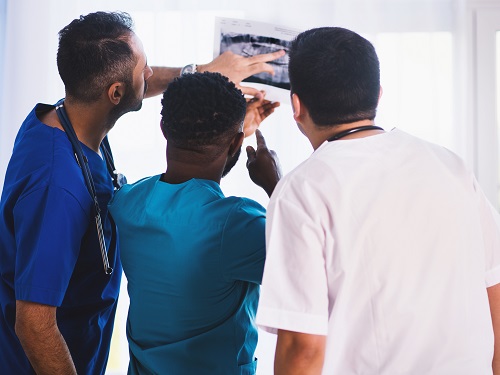AI Better at Breast Cancer Detection Than Doctors

Researchers at Good Health have created an AI program which, in tests, has proven to be more accurate at detecting and diagnosing breast cancer than expert human radiologists.
Trained
The AI software, which was developed by Good Health researchers in conjunction DeepMind, Cancer Research UK Imperial Centre, Northwestern University and Royal Surrey County Hospital was ‘trained’ to detect the presence of breast cancer using X-ray images (from mammograms) from nearly 29,000 women.
Results
In the UK tests, compared to one radiologist, the AI program delivered a reduction of 1.2% in false positives, when a mammogram was incorrectly diagnosed as abnormal, and a reduction of 2.7% in false negatives, where the cancer was missed. These positive results were even greater for the US tests.
In another separate test, which used the program trained only on UK data then tested it against US data (to determine its wider effectiveness), there was a very respectable 3.5% reduction in false positives and 8.1% reduction in false negatives.
In short, these results appear to show that the AI program, which outperformed six radiologists in the reading of mammograms and only had mammograms to go on (human radiologists also have access to medical history) is better at spotting cancer than a single doctor, and equally as good as spotting cancer as the current double-reading system of two doctors.
Promising
Even though these initial test results have received a lot of publicity and appear to be very positive, bearing in mind the seriousness of the condition, AI-based systems of this kind still have some way to go before more research, clinical studies and regulatory approval brings them into the mainstream of healthcare services.
What Does This Mean For Your Business?
This faster and more accurate way of spotting and diagnosing breast cancer by harnessing the power of AI could bring many benefits. These include reducing stress for patients by shortening diagnosis time, easing the workload pressure on already stretched radiologists, and going some way towards helping bridge the UK’s current shortage of radiologists who need to be trained to read mammograms (which normally takes more than 10 years training). All this could mean greater early diagnosis and survival rates.
For businesses, this serves as an example of how AI can be trained and used to study some of the most complex pieces of information and produce results that can be more accurate, faster, and cheaper than humans doing the same job, remembering that, of course, AI programs work 24/7 without a day off.
Sponsored
Ready to find out more?
Drop us a line today for a free quote!
